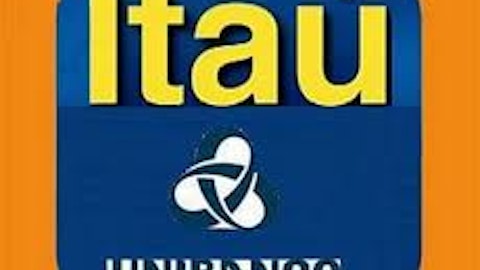
The Brazilian banking industry is highly concentrated in the hands of strong local players, including the two main private-sector banks, Itau Unibanco Holding SA (ADR) (NYSE:ITUB) and Banco Bradesco SA (ADR) (NYSE:BBD), and two state-owned banks, Banco do Brasil and Caixa Economica Federal. These four banks hold almost 70% of the financial system’s assets.
There have been concerns about the Central Bank of Brazil’s target rate decisions. The Bank reduced the SELIC rate over the course of 2012, but it increased the rate by 25 basis points in April 2013 in an attempt to rein in inflation. However, this trend doesn’t seem viable, as the real problem is Brazil’s anemic growth rate.
A Brazilian state-run bank in expansion
Brazil’s state-run Banco do Brasil posted a disappointing first-quarter net profit of $1.3 billion, up 2.4% year over year (y-o-y), as declining revenue offset the effects of faster loan disbursements and the reduction of provisions expenses due to a drop in default rates. Interest income dropped sharply and return-on-equity (ROE) fell to 16.5%, the lowest level in at least four years.
The Brazilian government is using state-run banks to prompt a continued expansion of credit to fuel economic recovery. In 2012, the bank posted an expansion of almost 25% of its credit portfolio, eclipsing its major private rivals. This quarter total loans rose 25.6% to $296.4 billion.
It should be noted that the bank is focusing on overseas acquisitions. Vice-President for Finance Ivan Monteiro said recently that Latin America and the US markets are priorities within the bank’s strategy. In 2010 the bank bought control of Argentina’s fourth largest bank, and in 2012 it paid $6 million to purchase a small bank in Florida.
Private banking
Brazil’s largest private-sector bank reported a first quarter net profit of $1.7 billion, up 1.2% y-o-y. Operating revenues declined 3.6%, reflecting a lower financial margin, partially offset by elevated banking service fees and income from banking charges. The company managed to reduce provisions for loans and lease losses.
Itau Unibanco Holding SA (ADR) (NYSE:ITUB)’s credit portfolio reached $217.0 billion, up 6.9% y-o-y. ROE continue to decrease, moving from 20.0% in the year-ago quarter to 19.1%.
With the intention of expanding operations in Brazil and abroad, Itau entered into a series of transactions. In 2012, Itau acquired 49.98% of Redecard. Also in 2012, the bank received authorization from the Colombian regulatory authorities to structure wholesale and investment banking operations in Colombia.
Recently Itau Unibanco Holding SA (ADR) (NYSE:ITUB) said it has agreed to buy the local consumer finance unit of Citigroup for $1.38 billion. The deal is subject to approval by regulatory authorities.

